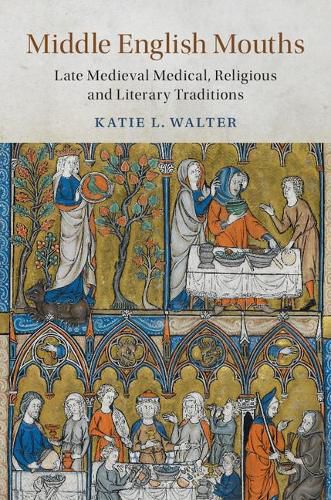Readings Newsletter
Become a Readings Member to make your shopping experience even easier.
Sign in or sign up for free!
You’re not far away from qualifying for FREE standard shipping within Australia
You’ve qualified for FREE standard shipping within Australia
The cart is loading…






The mouth, responsible for both physical and spiritual functions - eating, drinking, breathing, praying and confessing - was of immediate importance to medieval thinking about the nature of the human being. Where scholars have traditionally focused on the mouth’s grotesque excesses, Katie L. Walter argues for the recuperation of its material ‘everyday’ aspect. Walter’s original study draws on two rich archives: one comprising Middle English theology (Langland, Julian of Norwich, Lydgate, Chaucer) and pastoral writings; the other broadly medical and surgical, including learned encyclopaedias and vernacular translations and treatises. Challenging several critical orthodoxies about the centrality of sight, the hierarchy of the senses and the separation of religious from medical discourses, the book reveals the centrality of the mouth, taste and touch to human modes of knowing and to Christian identity.
$9.00 standard shipping within Australia
FREE standard shipping within Australia for orders over $100.00
Express & International shipping calculated at checkout
The mouth, responsible for both physical and spiritual functions - eating, drinking, breathing, praying and confessing - was of immediate importance to medieval thinking about the nature of the human being. Where scholars have traditionally focused on the mouth’s grotesque excesses, Katie L. Walter argues for the recuperation of its material ‘everyday’ aspect. Walter’s original study draws on two rich archives: one comprising Middle English theology (Langland, Julian of Norwich, Lydgate, Chaucer) and pastoral writings; the other broadly medical and surgical, including learned encyclopaedias and vernacular translations and treatises. Challenging several critical orthodoxies about the centrality of sight, the hierarchy of the senses and the separation of religious from medical discourses, the book reveals the centrality of the mouth, taste and touch to human modes of knowing and to Christian identity.